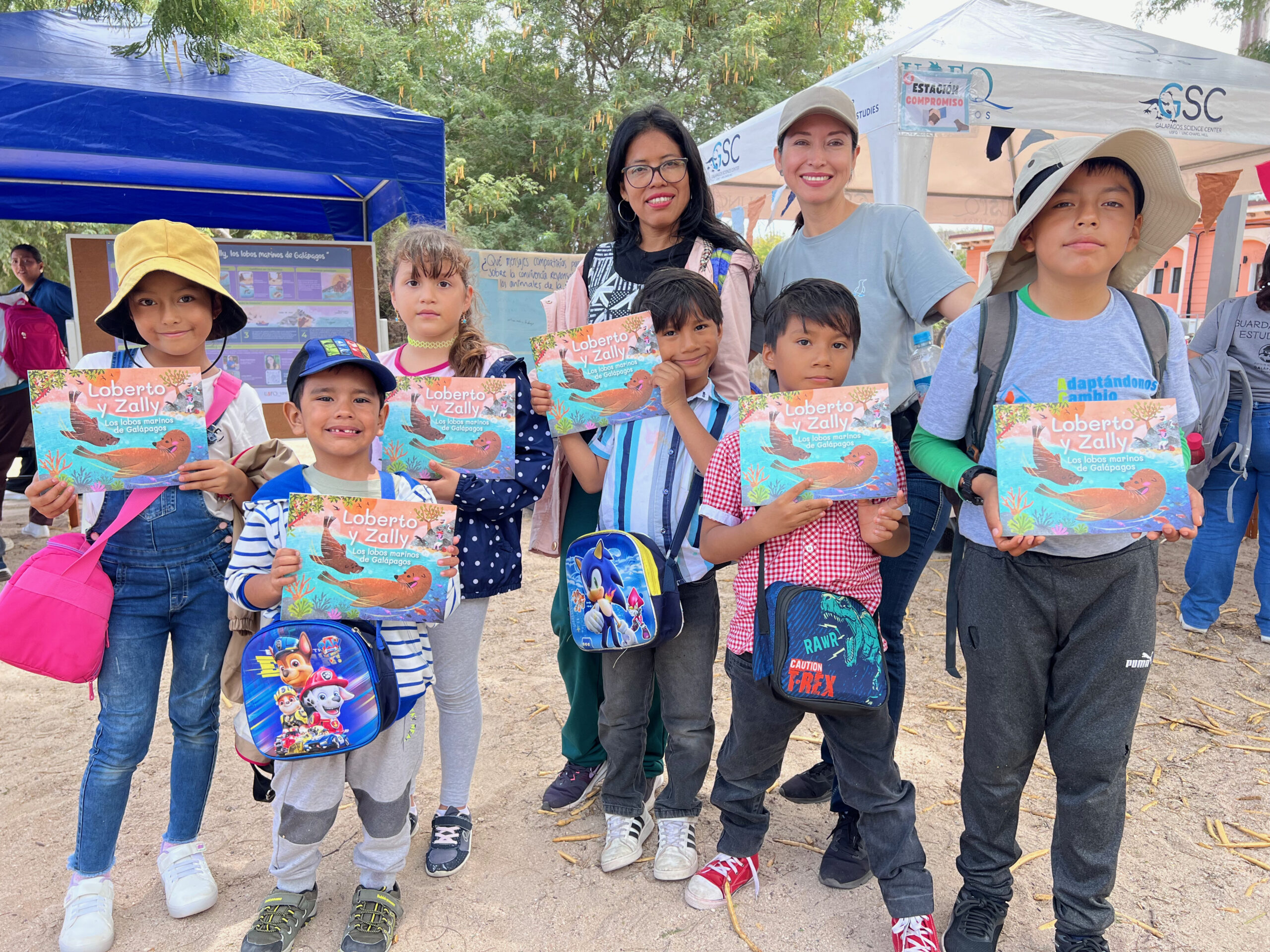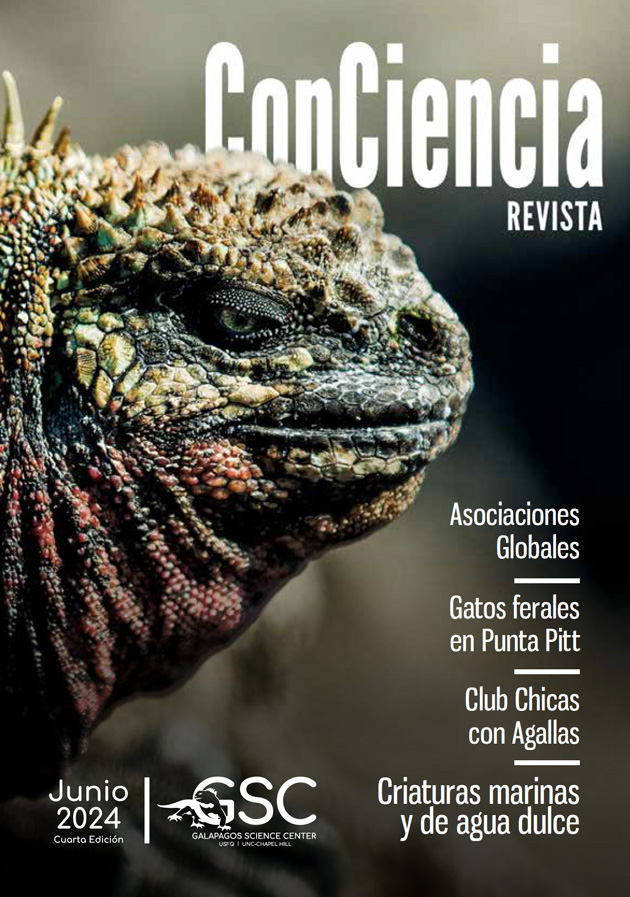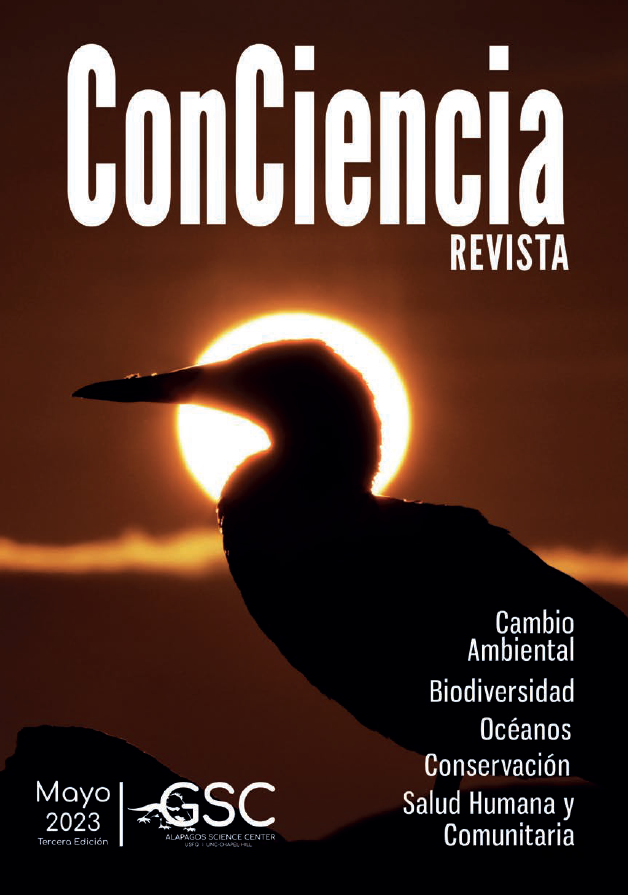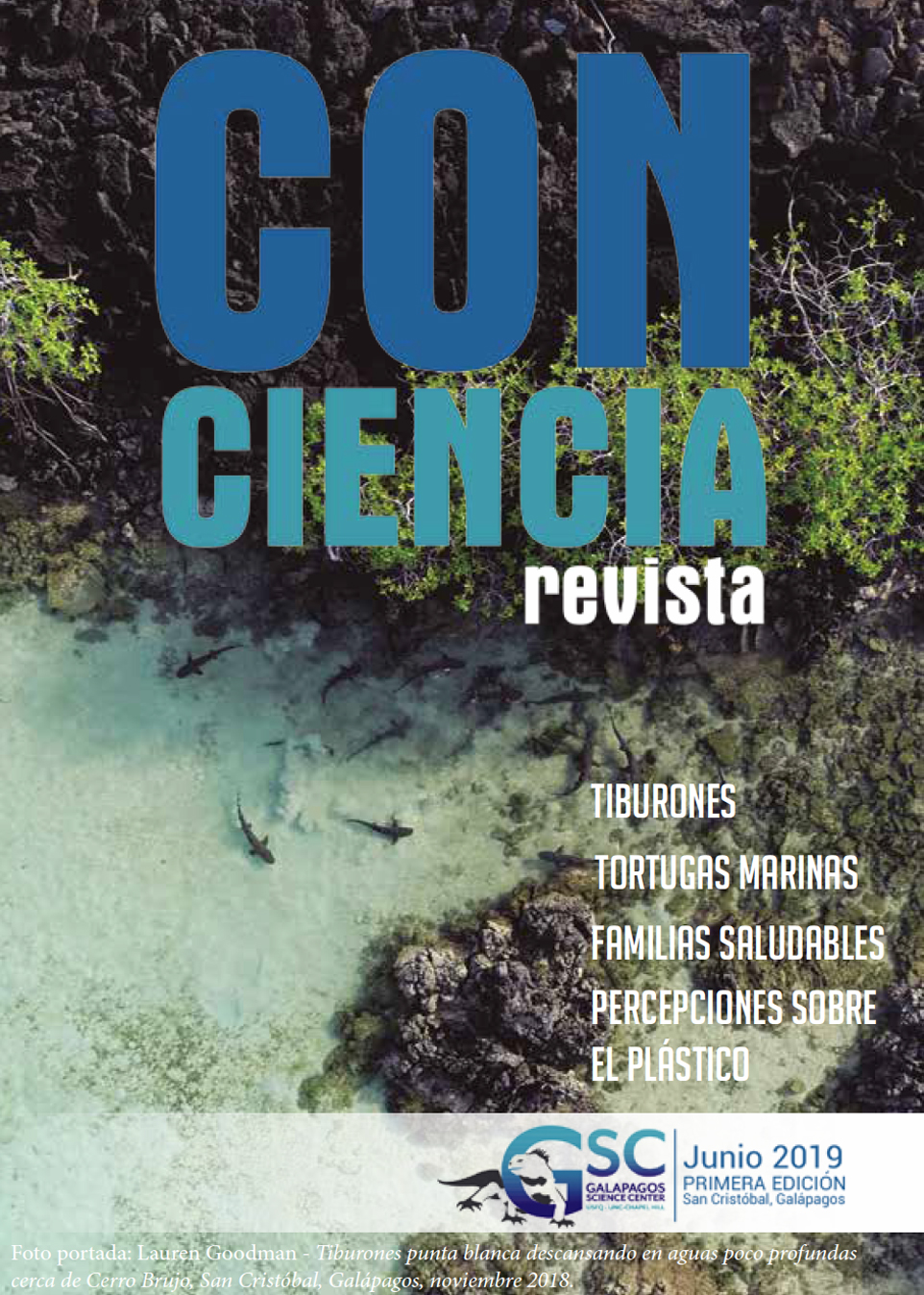Galapagos
Science Center
El Galapagos Science Center (GSC) es una iniciativa conjunta entre la Universidad San Francisco de Quito (USFQ) y la Universidad de Carolina del Norte en Chapel Hill (UNC) creada en el 2011 y que se encuentra en Puerto Baquerizo Moreno en San Cristóbal Galápagos.
El GSC tiene el objetivo de ofrecer un punto de coordinación para la realización de proyectos de investigación entre científicos locales, nacionales e internacionales en beneficio de las Islas Galápagos y la ciencia mundial.
El GSC se concibe como un espacio multidisciplinario con tres ejes fundamentales: investigación científica interdisciplinaria, educación a través de la ciencia y el programa de desarrollo social.
NUESTRAS METAS
Investigación Interdisciplinaria
Desarrollar proyectos de investigación interdisciplinarios para la conservación y sostenibilidad de las Islas Galápagos, y de todo el planeta, a través de 5 grandes áreas de investigación: cambio ambiental, comunidad y salud humana, conservación, océanos, y biodiversidad.
PROGRAMA DE DESARROLLO COMUNITARIO
Contribuir al desarrollo sostenible y una mayor conciencia ambiental en la comunidad local para comprender mejor las complejas interacciones entre las personas y el ambiente en el que viven.
Educación Experiencial
Acoger proyectos de investigación interdisciplinarios gracias a alianzas con el Parque Nacional Galápagos y otras instituciones públicas locales. Se han seleccionado estratégicamente varios proyectos emblemáticos para brindar experiencias prácticas de aprendizaje para estudiantes locales, nacionales e internacionales.
ASOCIACIONES GLOBALES
Crear una red global científica colaborativa de instituciones y académicos, impulsada por una diversidad de pensamientos, perspectivas, técnicas, enfoques, visiones y una infraestructura de datos enfocados en el estudio innovador de los ecosistemas insulares.
IMPACTO DEL GSC
IMPACTO DEL GSC
DESTACADOS
7mo Simposio de Investigación y Conservación en Galápagos
Puerto Baquerizo Moreno, en la isla San Cristóbal, será la sede del VII Simposio de Investigación y Conservación en Galápagos. Este importante evento multidisciplinario, que se llevará a cabo los días lunes 14 y martes 15 de julio de 2025 en el Centro de Convenciones Charles Darwin, será organizado por el Galapagos Science Center, gracias al auspicio de la Universidad de Carolina del Norte en Chapel Hill y la Universidad San Francisco de Quito, y con el aval del Parque Nacional Galápagos.
Mira el video del anterior Simposio
7mo Simposio de Investigación y Conservación en Galápagos
Con el propósito de fortalecer la conciencia ambiental y promover la conservación de los recursos naturales del archipiélago, el Galapagos Science Center (GSC) y el Galapagos Conservation Trust desarrollan desde 2019 el programa “Conectándose con la Naturaleza” (PCCN). Esta iniciativa ha impactado a más de 9,100 personas de la comunidad de la Isla San Cristóbal, fomentando la conciencia ecológica a través de actividades recreativas y formativas dirigidas a niños, jóvenes y adultos.
Lee nuestra Revista Epub edición 2024
Lee nuestra Revista Epub edición 2023
Lee nuestra Revista Epub edición 2022








